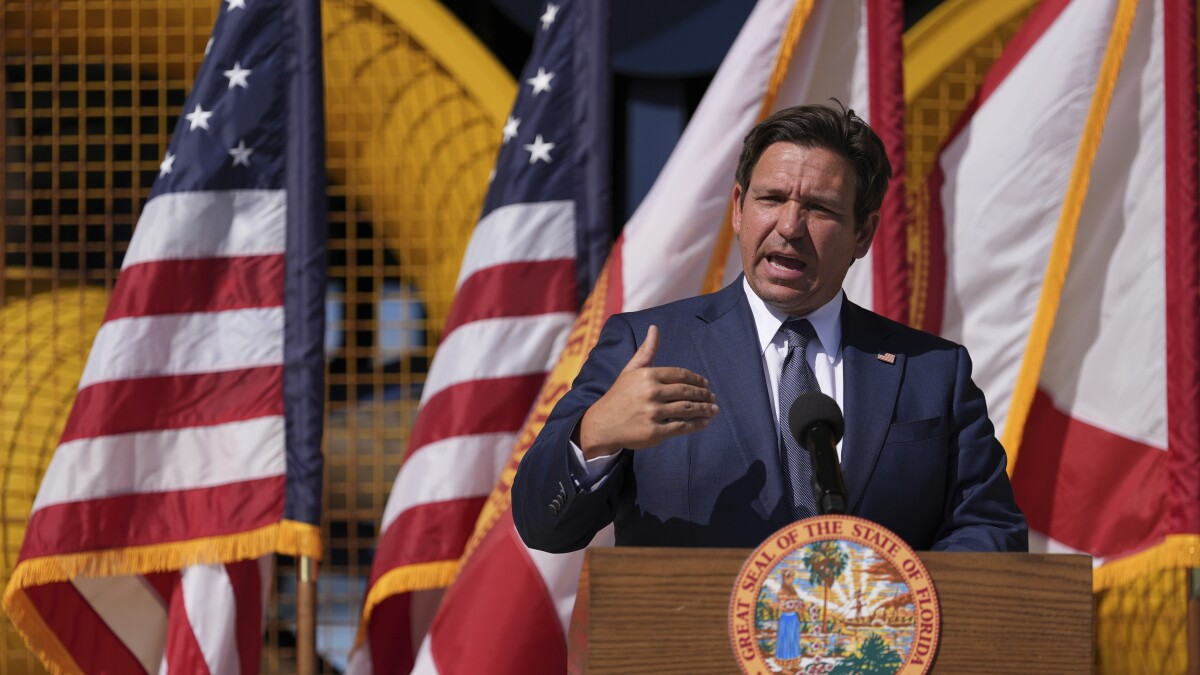Florida Governor Ron DeSantis has signed into law a sweeping set of immigration measures that further align the state’s policies with the federal government’s deportation agenda. The new laws aim to intensify enforcement against undocumented immigrants, streamline deportation processes, and increase penalties for individuals and businesses that violate immigration regulations. With this move, DeSantis solidifies his reputation as one of the most vocal proponents of strict immigration policies in the United States, positioning Florida at the forefront of a national debate on immigration reform.
Key Provisions of the New Immigration Laws
The newly enacted laws cover a broad range of immigration-related issues, from penalties for hiring undocumented workers to the expansion of law enforcement powers in dealing with suspected undocumented immigrants. Among the most significant measures in the package are:
- Stricter Penalties for Employers: Under the new laws, businesses found to be hiring undocumented immigrants will face harsher penalties. The state will increase fines for employers who fail to verify the immigration status of their employees, and repeat offenders could face criminal charges. These measures are aimed at discouraging businesses from relying on undocumented workers, a practice that some argue exacerbates the state’s immigration challenges.
- Expansion of Law Enforcement Authority: The new laws provide local law enforcement agencies with greater authority to inquire about the immigration status of individuals they arrest. This move effectively extends the role of state and local police officers in federal immigration enforcement, which has been a contentious issue among critics who argue that it could lead to racial profiling and the separation of families.
- Increased Funding for Immigration Enforcement: Governor DeSantis has allocated additional funding to the Florida Department of Law Enforcement (FDLE) to assist in tracking and deporting undocumented immigrants. The department will also partner with federal agencies like Immigration and Customs Enforcement (ICE) to expedite the removal of individuals who are in the U.S. illegally.
- Expanded “Sanctuary City” Ban: Florida has long been opposed to “sanctuary cities,” local jurisdictions that limit their cooperation with federal immigration authorities. The new law expands the state’s sanctuary city ban, effectively making it illegal for any local government to adopt policies that hinder cooperation with federal immigration enforcement. This provision is designed to prevent cities from becoming safe havens for undocumented immigrants.
- Support for Federal Deportation Efforts: The laws strengthen Florida’s cooperation with federal agencies like ICE, ensuring that undocumented immigrants are more likely to be detained and deported. This measure is in direct alignment with the Biden administration’s deportation priorities, which focus on removing individuals with criminal records or those who pose a national security threat.
The Political Context Behind the Laws
The signing of these new immigration laws follows a broader political shift within the Republican Party, which has increasingly adopted hardline immigration stances. Governor DeSantis, a potential 2024 presidential contender, has made it clear that immigration reform will be a central issue in his political agenda. By aligning his state’s policies with the federal government’s deportation priorities, DeSantis is positioning himself as a leader on the national stage, one who is willing to tackle illegal immigration head-on.
In his public statements, DeSantis has framed the laws as a necessary response to what he calls the “crisis” of illegal immigration. He has argued that the federal government’s failure to adequately address the issue has left states like Florida with no choice but to act unilaterally. DeSantis’ supporters have praised his actions as a means to protect American workers and reduce the strain on public resources caused by undocumented immigrants.
However, critics of the new laws argue that they will have harmful consequences for both immigrants and Florida’s economy. Opponents contend that the increased enforcement measures will lead to heightened fear and uncertainty among immigrant communities, potentially driving individuals further underground. They also argue that the laws could hurt Florida’s economy by deterring immigrants, who play a key role in industries such as agriculture, construction, and hospitality.
Impact on Florida’s Immigrant Population
The impact of these new immigration laws is expected to be significant for Florida’s large immigrant population. Florida is home to an estimated 2.5 million undocumented immigrants, many of whom have lived and worked in the state for years. With the new laws in place, many of these individuals may face increased scrutiny and risk of deportation.
Immigrant advocacy groups have expressed concern about the potential for widespread fear and disruption in the community. According to organizations like the Florida Immigrant Coalition, the laws will not only affect undocumented immigrants but will also harm legal residents and U.S. citizens. They argue that the laws could lead to increased racial profiling, particularly in communities of color, where immigrants are more likely to be detained or questioned about their status.
Economic Implications for Florida
Florida’s economy is heavily reliant on immigrant labor, particularly in sectors like agriculture, tourism, and construction. Many undocumented immigrants work in low-wage jobs that are essential to the state’s economy. The new laws, which could drive these workers out of the state or into the shadows, may lead to labor shortages in key industries.
Florida’s tourism industry, one of the largest in the nation, could also feel the effects of the new immigration policies. Immigrants play a vital role in Florida’s hospitality sector, from hotel housekeeping to restaurant service. If these workers are forced to leave the state or go into hiding, it could lead to disruptions in the tourism industry and negatively impact the state’s overall economic output.
Conclusion: A Divisive Policy Shift
Governor DeSantis’ enactment of sweeping immigration laws signals a dramatic shift in Florida’s approach to immigration enforcement. While the laws align with the federal deportation agenda and are seen as a victory by many conservatives, they have sparked significant controversy and raised concerns about their impact on immigrant communities and the state’s economy.
For more details on Florida’s immigration policies and their impact, visit Florida Department of Law Enforcement.
Disclaimer – Our team has carefully fact-checked this article to make sure it’s accurate and free from any misinformation. We’re dedicated to keeping our content honest and reliable for our readers.








